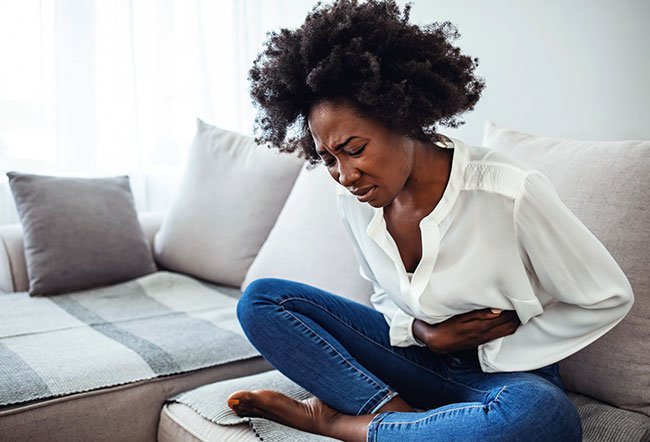
Learn about the most common IBS symptoms in women and how you can reduce their severity or frequency
While many symptoms of irritable bowel syndrome (IBS) are common in both men and women, some are exclusive to women. Women also tend to experience worse IBS symptoms during the menstrual cycle.
Learn about the most common IBS symptoms in women and how you can reduce their severity or frequency.
10 common symptoms of IBS in women
1. Constipation
Constipation caused by IBS is more common in women than in men. Factors that can lead to constipation include:
- Hormone production
- Anxiety
- Bowel motility
Constipation in women with IBS is characterized by the following:
- Infrequent stools
- Difficulty passing stools
- Painful cramping
2. Diarrhea
Changes in bowel habits are the primary symptom of IBS. However, diarrhea is less common in women than in men. Women with diarrhea as a symptom of IBS may experience more frequent loose stools around their menstrual cycle. Increased mucus in the stool may also be present.
3. Bloating
Bloating is common during certain stages of the menstrual cycle, and this symptom may be worse in women with IBS. Some women may experience discomfort passing gas or abdominal distention, which may be worse after menopause.
4. Pelvic pain
Women may experience pelvic pain along with other symptoms of IBS. Studies have shown that about one-third of women with IBS report chronic pelvic pain.
5. Worsened PMS symptoms
For women with IBS, hormonal changes during the menstrual cycle can exacerbate PMS symptoms such as increased pain sensitivity, mood swings, and fatigue.
6. Worsened menstrual symptoms
Women with IBS may experience more severe menstrual symptoms such as:
- Heavier periods
- Intense cramping
- Irregular periods
7. Incontinence
Women with IBS may lack control over their urine output, leading to incontinence. Some may even experience an overactive bladder. Common symptoms of incontinence and overactive bladder include:
8. Pelvic organ prolapse (POP)
Women with IBS may be more likely to develop POP, which occurs when the muscles and tissues that support the pelvic organs become weak and fail to hold the organs. Causes of POP include chronic constipation and diarrhea.
9. Pain during intercourse
IBS can cause sexual dysfunction in women. Apart from abdominal pain, pain may occur during sexual intercourse. Other sexual problems that may be linked to IBS include decreased sex drive and difficulty getting aroused.
10. Fatigue
Fatigue is common with IBS, but studies have suggested that women may be more affected than men. Factors that can lead to fatigue with IBS include poor sleep quality and other sleep problems.
What are risk factors for IBS in women?
- Age: IBS typically starts during the menstruation years, before the age of 50.
- Family history: Women who have close relatives with IBS are at a higher risk of developing IBS.
- History of sexual abuse: A history of sexual abuse can increase the risk of IBS and other functional disorders. This may be linked to IBS triggers associated with abuse, such as sleep disruption and mental health disorders.
- Fibromyalgia: Women with IBS may have other coexisting conditions such as fibromyalgia. In some women, the stress related to chronic pain can worsen IBS symptoms.
- Intestinal infections: Some people may experience IBS flare-ups after a bout of stomach illnesses such as gastroenteritis or the stomach flu.
How can symptoms of IBS be managed?
Lifestyle and diet changes can help women with IBS manage symptoms:
- Identifying and avoiding triggers
- Avoiding carbonated beverages
- Avoiding nuts and high-fiber foods
- Staying hydrated
- Eating smaller, more frequent meals
- Avoiding lactose, caffeine, and legumes
- Cutting down on foods that make you gassy or bloated
- Limiting or avoiding FODMAPs—a type of sugar present in some fruits, vegetables, breads, and dairy products
- Reducing stress and anxiety
- Quitting smoking
- Taking natural remedies that may help with IBS, including probiotics, herbs, fiber supplements, and digestive enzymes

QUESTION
What is irritable bowel syndrome or IBS? See Answer
Medically Reviewed on 6/22/2022
References
https://www.ncbi.nlm.nih.gov/pmc/articles/PMC7883586/
https://www.womenshealth.gov/a-z-topics/irritable-bowel-syndrome